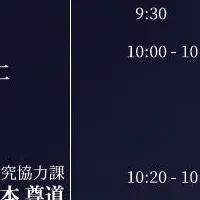
Celebrating Donna Haraway: Awarded the Esteemed 2025 Erasmus Prize
Celebrating Donna Haraway's Achievement
The Praemium Erasmianum Foundation has bestowed the prestigious Erasmus Prize upon the distinguished American philosopher and historian of science, Donna Haraway, for the year 2025. This significant accolade is a recognition of her profound contributions that intertwine biology, literature, art, and social activism. The theme for this year's award, “the pursuit of what binds us,” reflects Haraway's consistent efforts to challenge conventional frameworks of thought. Much like Erasmus, who expressed critical views on the follies of human nature, Haraway encourages a reevaluation of societal behavior through a lens focused on equality and transparency.
Born in 1944 in Denver, Colorado, Haraway first delved into the worlds of zoology and philosophy at Colorado College. Her academic journey took her to Paris, where she explored evolutionary philosophy before earning her PhD in biology from Yale University in 1972. Following her graduation, she assumed various teaching roles, influencing fields like women's studies and philosophy at institutions such as the University of Hawaii and Johns Hopkins University. After a long tenure, she retired from her position as a Professor of History of Consciousness and Feminist Studies at the University of California, Santa Cruz, leaving behind a legacy of innovative thought.
Haraway first captured global attention with her groundbreaking work, Cyborg Manifesto, released in 1985. This text not only facilitated discussions on feminist theory but also began to blur the lines between human and machine, male and female, and nature and culture. Such explorations continued in her subsequent work, Primate Visions (1990), where she meticulously analyzed the field of primatology, revealing that our perceptions of nature are tightly woven with cultural constructions of race and gender. She highlighted how language within scientific communities often reinforces gender biases, a topic she later revisits in her recent writings, including When Species Meet (2007) and Staying with the Trouble (2016). In these works, Haraway scrutinizes the relationships between organisms amidst an ecological crisis, urging for a reconsideration of what it means to coexist with non-human entities.
The impact of Haraway's work transcends academia, serving as a source of inspiration for a multitude of philosophers, artists, and scientists. Through her inventive metaphors and theories, she navigates contemporary crises, addressing significant issues like sexism, racism, and speciesism, which resonate in today's socio-political landscape. Given the depth and relevance of her ideas, she is widely regarded as one of the most influential figures in modern philosophy and contemporary art.
Throughout her illustrious career, Haraway has received numerous accolades, including the J.D. Bernal Prize in 2000 from the Society of Social Studies of Science, recognizing her exceptional contributions to the field. Moreover, in 2020, she was awarded the Nuevo León Alfonso Reyes prize, highlighting her unique ability to weave together narratives encompassing biology, economics, politics, culture, science fiction, feminism, and climate change.
The Erasmus Prize is typically awarded each year to individuals or institutions that have made exceptional contributions to the humanities or the arts. With its generous reward of €150,000, this prestigious prize not only acknowledges outstanding achievement but also serves to further the ideals promoted by His Majesty the King, the patron of the Foundation. The award ceremony will take place in the fall of 2025, providing a moment for the global community to celebrate a thinker whose work embodies the intricate connections that unite us all.
More information can be found at Erasmus Prize.
Topics People & Culture)










【About Using Articles】
You can freely use the title and article content by linking to the page where the article is posted.
※ Images cannot be used.
【About Links】
Links are free to use.